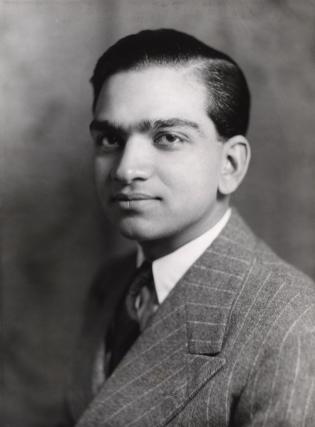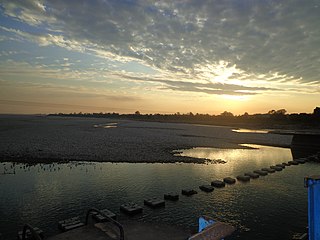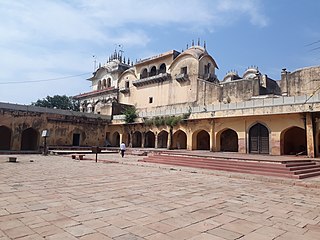
Rao Raja Sawai Pratap Singh was the founder king of Alwar State. He belonged to the Naruka clan of Kachhwaha dynasty. [1] [2] [3]

Rao Raja Sawai Pratap Singh was the founder king of Alwar State. He belonged to the Naruka clan of Kachhwaha dynasty. [1] [2] [3]
Pratap Singh who was earlier a jagirdar of "Dhai Gaon" (two and half villages) near Machari in Alwar. His successor "Bakhtawar Singh Kachwaha" was defeated when he ventured an armed incursion into neighbouring Jaipur State (ruled by their Kachwaha seniors, erstwhile overlord of his predecessor) and consequent treaty mediated by East India Company prohibited him from political intercourse with other states without the consent of colonial British. [4] Pratap's descendant and the last reigning ruler, H.H. Maharaja Sir Tej Singh Prabhakar Bahadur, signed the accession to the Indian Union on 7 April 1949. [5]

Alwar is a city located in India's National Capital Region and the administrative headquarters of Alwar District in the state of Rajasthan. It is located 150 km south of Delhi and 150 km north of Jaipur. At present the district is famous for production of Mustard Crop in the region, manufacturing of Ray Ban eyeglasses, Beer production plants and frozen food industry.
The three Round Table Conferences of 1930–1932 were a series of peace conferences organized by the British Government and Indian political personalities to discuss constitutional reforms in India. These started in November 1930 and ended in December 1932. They were conducted as per the recommendation of Muhammad Ali Jinnah to Viceroy Lord Irwin and Prime Minister Ramsay MacDonald, and by the report submitted by the Simon Commission in May 1930. Demands for Swaraj or self-rule in India had been growing increasingly strong. B. R. Ambedkar, Jinnah, Sir Tej Bahadur Sapru, V. S. Srinivasa Sastri, Sir Muhammad Zafrulla Khan, K. T. Paul and Mirabehn were key participants from India. By the 1930s, many British politicians believed that India needed to move towards dominion status. However, there were significant disagreements between the Indian and the British political parties that the Conferences would not resolve. The key topic was about constitution and India which was mainly discussed in that conference. There were three Round Table Conferences from 1930 to 1932.

The Kachhwaha, or Kachawa is a Rajput clan found primarily in India. Kachhawaha is a distorted version of Kachchhapaghata.

Mirza RajaMan Singh I was a Kachhwaha Rajput prince who became the 24th Maharaja of Amber from 1589 to 1614 and the Subahdar of Bengal for three terms from 1595 to 1606. He served in the Imperial Mughal Army under Emperor Akbar. Man Singh fought sixty-seven important battles in Kabul, Balkh, Bukhara, Bengal and Central and Southern India. He was well versed in the battle tactics of both the Rajputs as well as the Mughals. He is commonly considered to be of the Navaratnas, or the nine (nava) gems (ratna) of the royal court of Akbar.
Bhattiana is a tract of land lying in the Indian states of Haryana and Punjab between Hisar and the Garra. It was named Bhattiana because of being ruled by Bhatti.

Major General Maharaja Sawai Man Singh II GCSI GCIE was an Indian prince, government official, diplomat and sportsman.

Banbasa is a census town in Champawat district in the state of Uttarakhand, India most famous for its border crossing into Nepal from India. The major occupation is agriculture.
Maharaja Sir Tej Singh Prabhakar, KCSI, was a ruler of Naruka dynasty of the Indian princely state of Alwar, Rajasthan from July 22, 1937 to 15 Aug 1947. Also, he was the last ruling Maharaja of Alwar.

Jitendra Singh is the former Minister of State for Youth Affairs and Sports and the Minister of State for Defence, Government of India. He assumed this charge on 28 October 2012. Formerly, Jitendra Singh was the Minister of State for Home Affairs, Government of India; a position that he assumed in July 2011. He was the Member of Parliament representing the Alwar constituency of Rajasthan. Jitendra Singh is a member of the Indian National Congress. He is the present titular Maharaja of Alwar and hence the cultural head of Naruka clan of Rajputs.

Naruka is a clan of Rajputs found in India. Naruka Rajputs are offshoots of Maharao Naru Singh of Mozamabad, whose grandfather, Rao Bar Singh, gave up the throne of Amer kingdom. Rao Bar Singh was the eldest son of Raja Udaikarna of Amer. Naruka is the most prominent clan among Kachhwaha and holds an exceptional position in the history of India. They independently ruled on Alwar State.

Alwar State is a princely state of Naruka Rajputs with its capital at Alwar in India. Founded in 1770 CE by Pratap Singh Prabhakar, its reigning ruler, Maharaja Sir Tej Singh Prabhakar Bahadur, signed the accession to the Indian Union on 7 April 1949.

Sir Henry Miers Elliot was an English civil servant and historian who worked with the East India Company in India for 26 years. He is most known for The History of India, as Told by Its Own Historians based on his works, published posthumously in eight volumes, between 1867–1877 in London.

Bighoto is a tract of country starting from Delhi territory, from Rewari on the borders of Mewat to the Bikaner frontier and was dominated by Chauhan Rajputs and Yaduvanshi Ahirs (Yadavas).
Garhi Harsaru is a town and railway station in Gurugram district of Haryana state in India. It lies on the road from Gurugram city to Pataudi town. Its postal code (PIN) is 122505. According to the Census India 2011, it has a population of about 7894 persons of which 4216 are males while 3678 are females living in around 1539 households.
Raja Pratap Singh was the founder Raja of Barauli, in the Aligarh district. He was chief of Bargujar Rajput clan and close associate of Prithiviraj Chauhan, who founded his kingdom with capital at Barauli near Bulandshahar after defeating the Meos from Pahasu, Dibai and Anupshahr. He belonged to the Bargujar rulers of Macheri near Alwar and was invited by Prithviraj Chauhan to this area.
The New Year Honours 1908 were appointments by King Edward VII to various orders and honours to reward and highlight good works by members of the British Empire. They were announced on 31 December 1907.

Sawai Prithvi Singh II, also known as Prithviraj Singh II, was the Maharaja of Amer Kingdom. He was the eldest of his father Maharaja Sawai Madho Singh I 's remaining two sons the other being Sawai Pratap Singh.
Yadgar-i-Bahaduri is an Indian Persian language encyclopaedia of history, geography, science and art. Edited by Bahadur Singh, it was completed in 1834 CE in Lucknow.
Events in the year 1867 in India.